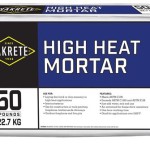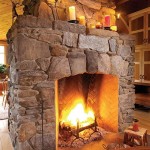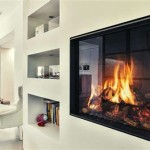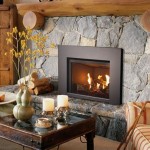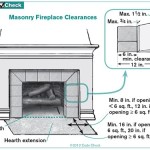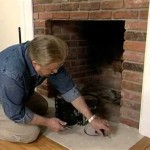Fireplace Water Heater: A Comprehensive Guide
Fireplace water heaters are a unique and efficient way to harness the heat generated by a fireplace to heat water for domestic use. These systems offer a sustainable and cost-effective alternative to traditional water heating methods, especially in locations where wood or other biomass is readily available. This article delves into the intricacies of fireplace water heaters, exploring their operation, benefits, and key considerations for potential users.
Fireplace Water Heater Operation
Fireplace water heaters function by using a heat exchanger to transfer heat from the burning fire to water circulating through a closed loop system. The system typically includes the following components:
- Firebox: The central element where firewood or other biomass is burned to generate heat.
- Heat Exchanger: A device, often made of copper or stainless steel, that facilitates the transfer of heat from the firebox to the water.
- Water Tank: Stores the heated water for later use.
- Pump: Circulates water through the system, ensuring efficient heat transfer.
- Thermostat: Controls the water temperature, preventing overheating and ensuring optimal performance.
- Safety Features: These include pressure relief valves, temperature sensors, and other mechanisms to maintain safety and prevent malfunctions.
When a fire is burning in the fireplace, hot gases and smoke rise upward, passing through the heat exchanger. The heat exchanger transfers the heat to the water circulating within its pipes, raising the water temperature. This heated water is then stored in the tank, ready for use in showers, sinks, and other household appliances.
Advantages of Fireplace Water Heaters
Fireplace water heaters offer several benefits over conventional water heating systems, making them an attractive option for energy-conscious homeowners:
1. Renewable Energy Source
Fireplace water heaters utilize renewable energy sources like wood or biomass, reducing reliance on fossil fuels and contributing to a more sustainable lifestyle. This is especially beneficial in regions with abundant wood resources.
2. Cost Savings
Using readily available wood or biomass for heating water can significantly reduce energy bills, particularly during colder months when conventional water heating systems consume more energy. This cost savings can be substantial, especially for households that already use wood-burning fireplaces for heating.
3. Environmental Impact
By reducing dependence on fossil fuels, fireplace water heaters contribute to a reduction in greenhouse gas emissions, mitigating the environmental impact of water heating. The carbon footprint associated with burning sustainably sourced wood is considerably lower than that of using natural gas or electricity.
4. Increased Efficiency
Fireplace water heaters can enhance the overall efficiency of a home's heating system. By harnessing the wasted heat from the fireplace, these systems reduce heat loss and maximize energy utilization. This can result in lower heating costs and a more comfortable living environment.
Considerations for Installing a Fireplace Water Heater
While fireplace water heaters offer significant advantages, there are certain considerations to keep in mind before investing in one:
1. Fireplace Type and Size
Not all fireplaces are suitable for water heating. Open fireplaces, for example, can be less efficient than enclosed fireplaces. The size and design of the fireplace also play a role in determining the amount of heat available for water heating.
2. Water Demand
The capacity of the fireplace water heater should match the hot water needs of the household. Factors like the number of bathrooms, occupants, and usage patterns influence the required water tank size and heating capacity.
3. Installation Costs
The initial installation costs for a fireplace water heater can be higher than that of conventional systems. This includes the purchase of the water heater unit, the installation process, and any necessary modifications to the fireplace and plumbing.
4. Maintenance
Fireplace water heaters require regular maintenance to ensure optimal performance and safety. This involves cleaning the firebox, inspecting the heat exchanger, and checking the system's functionality.
Before deciding whether a fireplace water heater is suitable for a particular home, consulting with a qualified HVAC professional is essential. They can assess the fireplace's suitability, evaluate the water heating needs, and provide expert advice on installation and maintenance.

Fireplace As Heatingsystem Called Thermo Exclusive Property Blog

Kratki Wood Fireplace Water Heater Eryk 10 Kw Lateral Flame Deco

Fireplace Made Out Of A Water Heater Gas Bottle Wood Burner Welding Projects Garden Design

Water Heating Fireplace Inserts

Diy Wood Stove Water Heater Plans Mother Earth News Burning

Wood Fired Hot Water Heater

Boiler Stoves For Wood Powered Central Heating And Hot Water

Water Heater Wood Fired Manufacturers And Suppliers China Brands Hi Flame Metal

Off Grid Water Heater The Ultimate Guide 5 Useful Methods Maximum Calentadores De Agua Estufas Leña

Water Heating Fireplace Aquario M 12 Kw Ø 180 Self Closing Door Kratki
Related Posts


